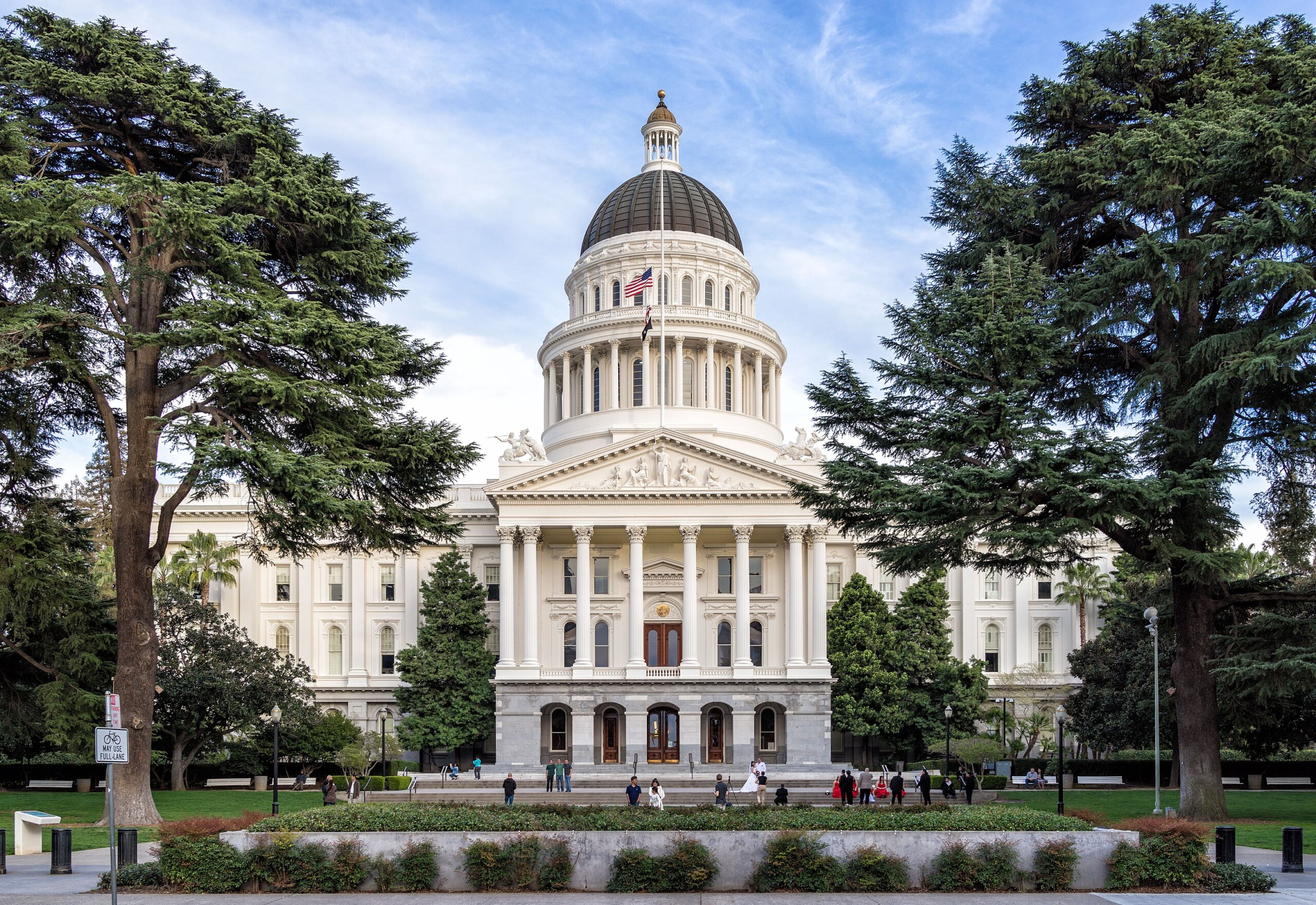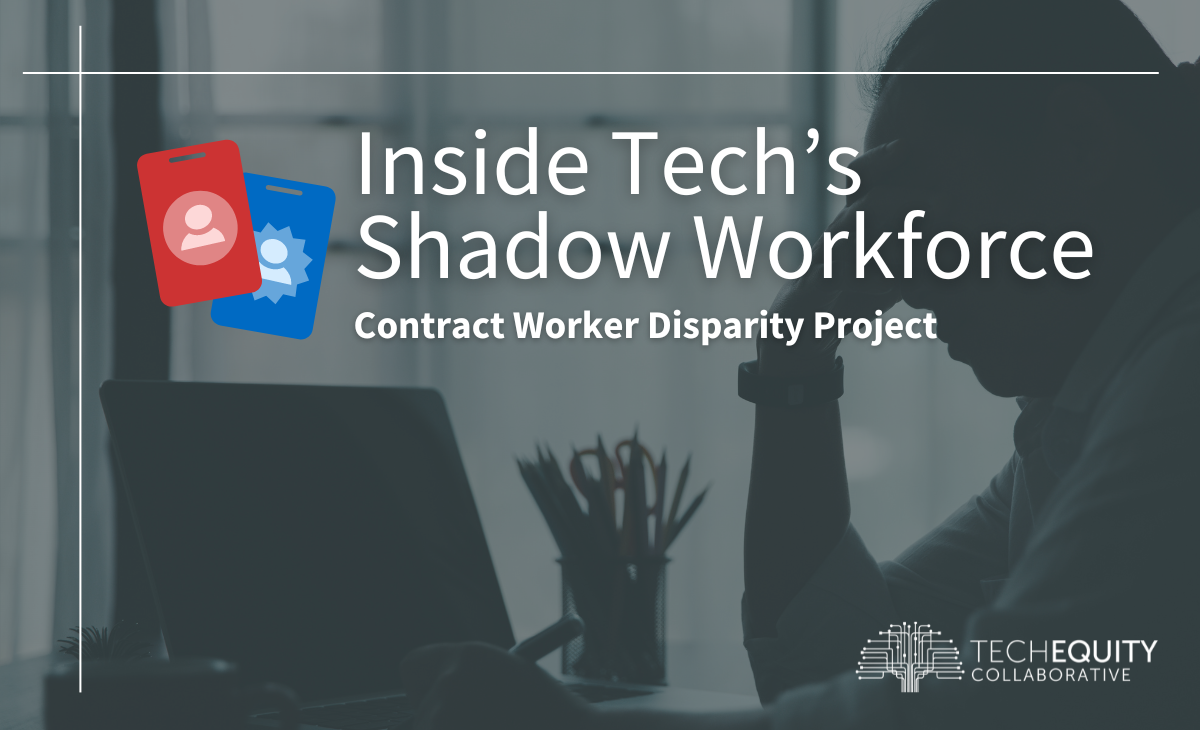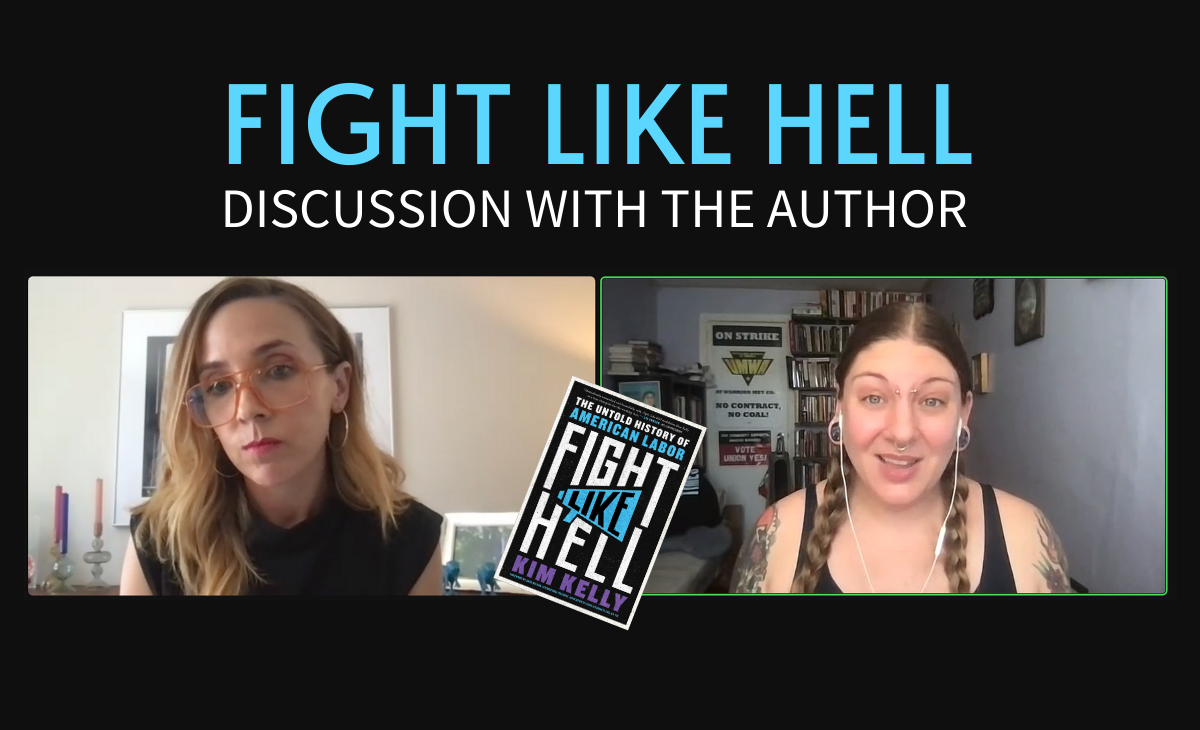Introducing TechEquity’s 2020 Legislative Agenda

Each year, hundreds of bills are introduced into the California legislature. We sift through legislation to find and select a set of bills that address problems in our issue areas: housing and labor & workforce. We believe that these bills will do the most to ensure an affordable home, a family-sustaining job, and a true safety net are available to all Californians.
We’ve chosen four priority bills to focus our advocacy efforts on. They will create a statewide rental registry to track changes in the rental market, legalize housing density by ending racist, exclusionary single-family only zoning, and encourage affordable housing production by expanding the state’s density bonus. We’re spending the most time on these bills and doing all we can to ensure that they become law. They are also the ones that we are asking you to help us with. You can contact state representatives and let them know that you believe in these bills and want to see them passed into law.
In the rest of this post, we’ll explain more about the bills we support and why they’ve earned our backing. We’ll start with our four priority bills and also tell you about a number of other bills we have voiced our support for because they will make California’s economy work for everyone.
Creating a rental registry (AB 2406)
We’re co-sponsoring AB 2406 which will create a registry that collects price and eviction data for rental units across the state. This data currently doesn’t exist, making it harder for public officials to make data-driven decisions that will prevent homelessness and displacement.
The rental registry is also a critical tool that enforces tenant protection laws, provides rich data for researchers, and assists nonprofits who preserve affordable housing.
Current Status: Died in the Assembly Appropriations Committee.
Legalizing housing density (SB 902 & SB 1120)
We support SB 902 and SB 1120 which will repeal single-family only zoning statewide and make it easier for cities to build more housing near jobs and transit. SB 1120 will end single-family only zoning by allowing two-unit buildings on every residential property in California. Single-family only zoning policies are rooted in a racist and exclusionary past. This bill will begin to correct that ugly legacy and increase our capacity to build new housing.
SB 902 makes it easier for cities to add even more density near transit and job centers which allows workers to live closer to their jobs, reducing the reliance on cars and helping California meet its carbon emissions reduction goals.
Current Status: SB 1120 died on the Senate Floor. SB 902 died in the Assembly Appropriations Committee.
Encouraging affordable housing (AB 2345)
We support AB 2345 which will boost affordable housing production by expanding the state’s density bonus program. The density bonus encourages affordable housing production by allowing developers to add more units and receive exemptions from building restrictions when they add more affordable units to their projects.
This bill will grant developers more units if they add more affordable housing than is currently called for in the density bonus. It will also increase the number of exemptions a developer can receive if they add more affordable units.
Current Status: Passed by both houses. Awaiting Governor’s signature.
Additional bills we support
We’ve submitted letters of support for a number of other bills that will make California’s economy work for everyone. We’ve grouped our descriptions of them by issue area.
Housing
We’ve further grouped our housing bills by the 3Ps (protection, production, & preservation) with an additional grouping for bills addressing California’s homelessness crisis.
Protection
Permanent COVID-19 eviction ban (AB 1436)
AB 1436 will permanently ban evictions for missed rent payments during the COVID-19 state of emergency and 90 days after the end of the state of emergency if the tenant suffered an income loss or increased expenses due to the pandemic. Landlords may still sue tenants to collect back rent, but they will not be able to evict those tenants. The bill also contains forbearance requirements for multi-family property mortgages. Landlords can receive up to a six-month extension on their mortgage payments if they experience shortfalls in rent collections.
Current Status: Incorporated into a separate compromise bill.
Eviction defense for undocumented Californians and eviction data collection (AB 2271)
AB 2271 expands the right to legal counsel in certain critical civil cases (like evictions) to undocumented Californians. Currently, the state mandates (but does not fully fund) legal representation in critical civil cases. The bill also requires courts to report monthly counts on eviction cases.
Current Status: Incorporated into the state budget.
Keep Californians Housed Assistance Fund (SB 1015)
SB 1015 would create a state fund that gives money to local government programs that prevent evictions. The bill does not specify uses for the grants but the author, Senator Skinner, has mentioned direct assistance to tenants facing eviction or legal counsel for tenants involved in eviction court cases.
Current Status: Died in Senate Housing Committee.
COVID-19 Rental Assistance Fund (SB 1410)
SB 1410 would defer payment of back rent until 2024, and tenants would owe the state of California instead of their landlord. Landlords would receive a tax credit equal to the amount of back rent, and they could use the tax credit themselves starting in 2024 or sell it to someone else. Both the repayment period and tax credits would last for ten years, until 2034. Participation is optional for landlords and tenants.
Current Status: Died in the Assembly Appropriations Committee.
Production
Reducing parking requirements for housing on religious institutions’ land. (AB 1851)
AB 1851 would reduce parking requirements for housing development on religious institutions’ land and make it clear that religious institutions do not need to replace parking spaces converted to housing.
Current Status: Passed by both houses. Awaiting Governor’s signature.
$10 billion over 5 years to fund housing production (SB 795)
SB 795 would appropriate $10 billion over the next five years for housing production, climate change response, and community development. Most of the money would be used for housing production, with smaller amounts for the climate and community development uses.
Current Status: Died in the Assembly Appropriations Committee.
Collecting data on housing production (AB 3146)
AB 3146 would require local planning departments to include additional data on housing production and the use of public subsidies and incentives in their annual reports.
Current Status: Died in Assembly Housing and Community Development Committee.
Affordable housing on nonprofit hospitals’ or religious institutions’ land (SB 899)
SB 899 would streamline housing developments on the land of a nonprofit hospital or religious institution. It would also grant CEQA exemptions to these projects. To use this bill, 100% of the development’s units would have to be affordable to lower-income residents.
Current Status: Died in the Assembly Appropriations Committee.
Preservation
Tenant opportunity to purchase (SB 1079)
SB 1079 would give tenants and government agencies the first right to make an offer on foreclosed properties. They would have a 20-day exclusive period, but sellers are not required to accept their offer. The bill would also limit foreclosure auction purchasers to three properties per auction.
Current Status: Passed by both houses. Awaiting Governor’s signature.
Homelessness
Mortgage interest deduction cap (AB 1905)
AB 1905 would make second homes ineligible for the mortgage interest deduction. The additional tax revenue from lowering the cap would be used for homelessness services.
Current Status: Died in Assembly Housing and Community Development Committee.
$2 billion annually for homelessness services (AB 3300)
AB 3300 would establish a $2 billion annual appropriation for addressing homelessness in the state. The money would be provided to local governments through a grant process. The bill would also exempt temporary, supportive, and affordable housing projects in large cities from CEQA approval.
Current Status: Died in the Senate Housing Committee.
Labor & Workforce
Expanding state EITC to workers with ITINs (AB 1593)
AB 1593 would grant California workers who are not citizens and file their taxes using an individual taxpayer identification number (ITIN) eligibility for the state earned income tax credit (EITC). Under existing law, only workers with a Social Security Number can receive the EITC.
Current Status: Incorporated into the state budget.
Union voice in the use of new technology in public transit (AB 2873)
AB 2873 would require public transit agencies to consult with transit operator unions before implementing new technology that would affect transit operators’ jobs.
Current Status: Died in Assembly Transportation Committee.
COVID-19 Labor Protections (AB 3216)
AB 3216 provides a number of protections for California workers during the COVID-19 pandemic. The bill would grant emergency paid sick leave to all California workers, expand family and pregnancy leave to all employees, and make leave easier to access during an emergency. It also requires companies in heavily COVID-impacted industries like hotels, airport hospitality, event centers, and building services to offer jobs back to laid-off workers. The bill also ensures workers in those industries will keep their jobs if the company is sold during the crisis.
Current Status: Passed by both houses. Awaiting Governor’s signature.
Fair scheduling for retail workers (SB 850)
SB 850 would require retail stores to post their schedules one week in advance and give extra pay to their workers if they change the schedule after that point. Workers would also be paid at least half of their regular pay for on-call shifts even if not called in.
Current Status: Died in Senate Labor, Public Employment, and Retirement Committee.
COVID-19 eviction protection for businesses (SB 939)
SB 939 would ban evictions from commercial properties while the COVID-19 state of emergency is in place. It would also allow bars, restaurants, and entertainment venues that have suffered income losses due to the pandemic to renegotiate rents with their landlords.
Current Status: Died in the Senate Appropriations Committee.
Broadband for all Californians (SB 1130)
SB 1130 would use existing funds to expand access to broadband internet. The bill would raise minimum speed levels for projects utilizing these funds and require new broadband projects funded by state funds to have higher capacity. It would also encourage open access to internet infrastructure funded through this program.
Current Status: Died on the Assembly Floor.
Stay tuned for updates on these bills and other changes to our agenda as the legislative process continues throughout the summer.





